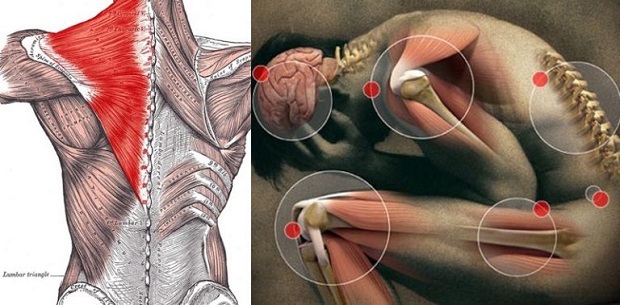If you feel like you’re not getting real results you might be over training. Usually over training happens when you perform more training than your body can recover from.
Although it can be really hard to reach the point of exhaustion, there are some people who exceed this point. Over training can be dangerous because it can take weeks or even months of recovery, so you better try to prevent it.
A little exercise is good for you, so more must be better, right? Well, sometimes. And sometimes more is just that—more. In the quest for better health and fitness, it is sometimes difficult to quell one’s enthusiasm and take a break from exercise. But if exercise is leaving you more exhausted than energised, you could be suffering from an acute case of over training.
Individuals who exercise excessively are risking more than poor performance: They’re risking their health. If you recognise the following symptoms in yourself or in a friend, it is essential that you seek professional help.
1. Decreased performance.
Slower reaction times, reduced speeds and lowered endurance levels are all common signs of over training.

2. Agitation, moodiness, irritability or lack of concentration.
Too much exercise and too little rest can wreak havoc on the hormones and cause mood swings and an inability to concentrate.
3. Excessive fatigue and malaise.
A body that never has a chance to fully recover from a previous workout will continue to feel more and more fatigued. Some people describe this feeling as “heavy legs.”
Related article: What Is The Best Rest Time Between Sets For Monster Muscle Growth?
4. Increased perceived effort during normal workouts.
Over training takes a toll on the body, and workouts that were once a breeze can begin to feel like a grind.
5. Chronic or nagging muscle aches or joint pain.
Overused muscles and joints can cause constant aches, which may go unnoticed until the body is given proper rest.

6. More frequent illnesses and upper-respiratory infections.
Too much exercise taxes all of the body’s systems and makes it more difficult to ward off infections.
7. Insomnia or restless sleep.
During sleep the body has time to rest and repair itself. An over trained body, however, is sometimes unable to slow down and completely relax, making it difficult to recover between workouts.
Related article: How Much Can You Lift – How To Calculate Your One-Rep Max (1RM)?
8. Loss of appetite.
Over training can cause an increase in hormones such as epinephrine and nor epinephrine that tend to inhibit appetite. The physical exhaustion and anxiety that often comes with over training can also have the same effect.
9. Chronically elevated heart rate at rest and during exercise.
A clear sign of an overworked heart muscle is a chronically elevated heart rate. Also, people who over train will often find that it takes longer for their heart rate to return to normal after a workout.

10. Menstrual cycle disturbances in women.
Exercising excessively and not consuming enough calories may disrupt a woman’s menstrual cycle. While some may experience irregular periods, others will stop menstruating altogether.
Undoing the Damages of Over training
So, what should you do if you’re suffering from multiple symptoms of over training? As you might have already guessed, there’s no one-size-fits-all solution. Depending on how long the issue has been perpetuated, the length of time you’ll need to spend focusing on rest and restorative activities will vary.
Related article: 9 Fabulous Foods to Help You Sleep Better And Feel Revitalised
Here’s some simple guidelines to follow that will serve as a good place to start:
1. Take time off
I mean stop working out. I know that’s easier said than done, but consider it time that will allow you to become stronger. Take at least 4-7 days off, and then do a light workout to see if your symptoms have resided. If they haven’t, take another week off.
If your symptoms still persist after two weeks off, consider working with a professional to help you understand the severity of your symptoms and get you on a plan that will help you recover appropriately.

2. Ease back into it
If your symptoms have subsided after your dedicated time off, get on a plan that gradually allows you to interact with training again. Do light, restorative workouts like walking or swimming for 2-4 weeks to see how your body responds, and use myofasical release tools like the foam roller or massage stick to help relieve soreness and tightness.
If things improve, introduce training that is reduced by 1/2 or 1/3 in both volume and intensity when compared to what you used to do.
Related article: The 10 Best And Delicious Snacks for Weight Loss
3. Shift your mindset
Get rid of the Facebook and Instagram accounts you follow packed full of fitspo designed to make you feel like whatever you are right now isn’t good enough. Long-term happiness doesn’t come from what your body “is”—it comes from what your body does.
Focus on making your body more capable of experiencing all that life has to offer, and dedicate time to new activities outside of training or workouts that bring you joy.

4. Sleep and eat like a pro
Supply your body with the nutrients it needs to recover, repair, and build. Focus on nutrient-dense, whole foods, and getting to bed earlier. If you’re experiencing trouble sleeping, check out 5 Reasons You Can’t Sleep at Night to help get your sleep on an normal cycle again.
Related article: 11 Yoga Poses To Abolish Stress From Your Day
5. Listen to your body
Use your experience with over training as feedback for what not to do in the future. Be intentional with the amount of rest you schedule into your training, and have accountability. If symptoms of over training start to come back, take an additional few days off to allow your body to recover.

